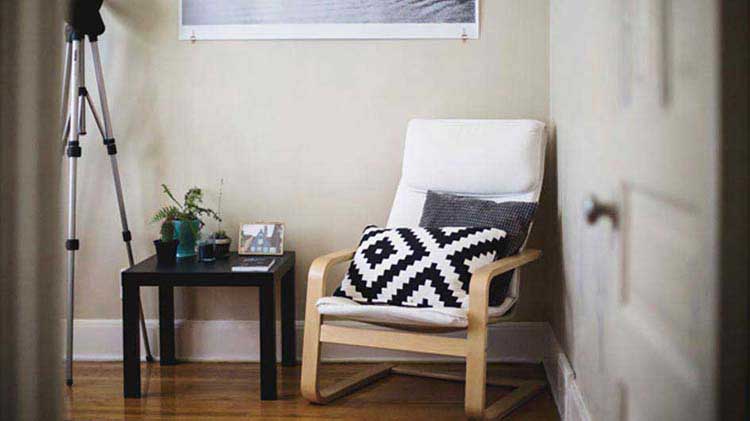Renters insurance coverage
Your furniture is in place. Your utilities are hooked up, and your rental unit is starting to look like a home. But renters insurance should be an important part of that to-do list. It may be more important, accessible and competitively priced than you think when it comes to coverage for your stuff.
What does renters insurance cover?
In short, renters insurance helps cover what you own and for what you’re liable. Most landlords’ insurance covers only the building and damages due to negligence. A renters insurance policy can help you with:
Property coverages
Personal property
Helps cover your personal possessions not permanently attached to your home if they are damaged or stolen.
Loss of use
Helps cover additional living expenses if you need to vacate your home because a covered loss left it uninhabitable.
Additional coverages
May provide payment for arson reward, collapse, credit or bank card forgery, debris removal, fire department service charge, locks and remote devices, power interruption, property removed, refrigerated products, temporary repairs, trees, shrubs and landscaping, and volcanic action.
Liability coverages
Personal liability
Helps provide protection if someone makes a claim or brings suit against you for bodily injury or property damage caused by a covered occurrence. This includes:
- Damage to property rented to you caused by fire, smoke, explosion or abrupt and accidental damage from water
- If you’re found legally responsible for property damage or injury to another person or their property
- Up to $500, in excess of the security deposit, if your household pets cause damage to property rented to you
In addition to these settlement costs for damages which you’re legally liable, this coverage may help pay defense costs and court costs. State Farm will not provide a defense for criminal prosecution or proceedings. Be sure to select liability limits high enough to protect your assets.
Medical payments to others
Helps cover injuries to others that might occur on your property. Also known as guest-medical payments, it helps provide limited coverage if a third party is accidentally injured and needs medical treatment.
Additional coverages
Helps cover payment for damage to the property of others caused by you, your claim expenses, and first-aid expenses to others incurred by you.
Coverage in action
Let’s say you return from work and your couch is gone and a couple of lamps were damaged. Renters insurance may help pay the costs of the covered loss.
What does renters insurance not cover?1
Keep in mind that your policy will exclude certain perils and property, including but not limited to:
Property
Property damage to your building, roof, and siding (these are covered by your landlord)
Causes of loss
Including but not limited to damage caused from flood, underground water, earthquakes, mudslides, settling, deterioration, contamination, nuclear hazard, birds, rodents, insects or domestic animals. If your community participates in the National Flood Insurance Program (NFIP), you can buy flood insurance coverage through agents enrolled in the NFIP-Direct program.
Frequently asked questions about renters insurance
Renters insurance runs about $15 a month for approximately $35,000 in coverage limits, based on a National Association of Insurance Commissioners (NAIC) survey. That’s almost less than a fast-food lunch.
Ask yourself these questions:
- How much are my belongings worth?
- If they were lost in a fire or stolen, could I buy them all back?
- What would I do if someone were injured in my apartment and made a covered claim against me?
- What if I were found legally responsible for covered damages to someone’s property?
Would you be able handle those expenses out of pocket?
It depends how much for which you want or need coverage. Think about the what ifs. Do you want additional coverage?
Personal property coverage is probably the main reason you purchase a renters policy. The coverage can reimburse you for covered damage, loss, or theft of your personal possessions up to a certain dollar amount, so you'll want to make sure you choose the right amount. Performing a home inventory is a good way to determine how much property coverage you need. Follow this step-by-step checklist to inventory your personal property:
- List each item, when you acquired it and the purchase price or current value.
- Total the amounts of these items for a rough idea of what your property is worth.
- Once this is done, put your inventory in a safe place away from home — for example, in a bank safe deposit box.
- Consider adding photos to your inventory — it could help if you have a claim.
It depends on the source of the water. If a pipe bursts, your renters insurance may help pay for damage caused by a covered loss. If a river or other bodies of water overflow, most renters policies — including those offered by State Farm — would not cover damage caused by flooding.
Most renters insurance policies — including those offered by State Farm — do not cover damage caused by flooding if a river or other bodies of water overflow. If your community participates in the National Flood Insurance Program (NFIP), you can buy flood insurance coverage through agents enrolled in the NFIP-Direct program. Your State Farm agent can probably assist you with obtaining flood insurance.
Most renters policies do not cover damage to the building where you are living. Renters insurance helps cover what’s inside the structure, but not the structure itself.
In the event of a covered loss, the liability portion of your renters insurance will help provide coverage if you're held responsible for injuring another person or damaging their property. This coverage applies whether the incident occurred within your residence or elsewhere. Moreover, some policies may provide a legal defense in addition to the amount of damages for which you are legally responsible.
The typical renters insurance policy includes $100,000 in liability coverage, but higher limits are available for purchase. If you frequently have guests in your home, you should consider increasing your liability coverage to an amount that at least equals the total value of your assets.
It is. Factors such as theft rates and probability of natural disasters make a difference in some coverages and pricing.
Renters insurance helps cover fire damage to your personal property caused by accidents, faulty appliances, electrical system issues, and more.
Special coverage limits apply to certain types of personal property, including:
- Boats and other watercraft equipment
- Money, bank notes, and coins (including collections)
- Property used or intended for use in a business
- Securities, checks, travelers checks, gift cards, phone cards
- Stamps, trading cards, and comic books (including collections)
- Theft losses of jewelry, furs, firearms, silverware and goldware, rugs, tapestries, and wall hangings
Get a local agent who gets you
There’s a State Farm agent nearby ready to offer personalized service to fit your specific needs.

Additional insurance options
Simple Insights®
Looking for help protecting your residence? You’ve come to the right place. Articles from Simple Insights draw on over 100 years of State Farm knowledge.
1 All property coverages are subject to the Losses Not Insured provision of the policy. Please refer to the policy for descriptions of losses insured and not insured.
State Farm Fire and Casualty Company
State Farm General Insurance Company
Bloomington, IL
State Farm Florida Insurance Company
Tallahassee, FL
State Farm Lloyds
Richardson, TX
 Tips for rental coverage needs
Tips for rental coverage needs Why landlords require rental insurance
Why landlords require rental insurance Does renters insurance cover hotel stays?
Does renters insurance cover hotel stays?